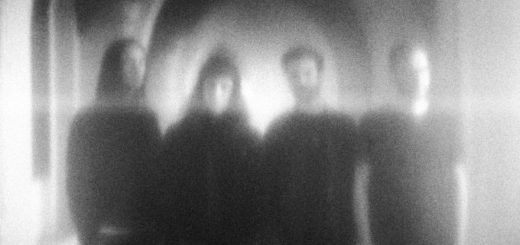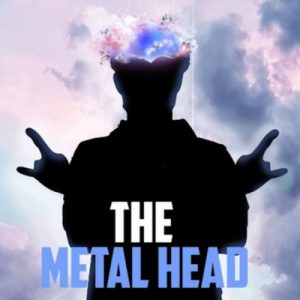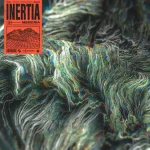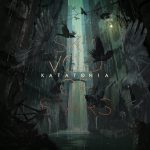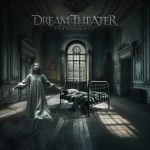King Gizzard and the Lizard Wizard: ‘The Silver Cord’ Review
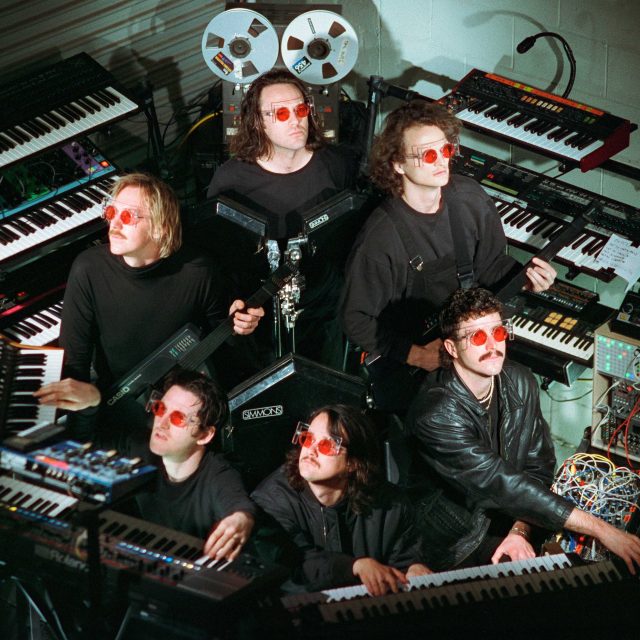
The ever-so-prolific Aussies over at King Gizzard and the Lizard Wizard have dropped their second album this year. For those uninitiated, they are a Melbourne-based collective currently consisting of Stu Mackenzie, Ambrose-Kenny Smith, Joey Walker, Cook Craig, Michael Cavanaugh and Lucas Harwood. The band released their first album back in 2012 and since then have released 25 albums. That would be crazy enough in itself, but they are also known to be musical chameleons having explored genres as wide as psychedelic rock, jazz and hip hop just to name a few over the years.
Following the progressive metal behemoth that is PetroDragonic Apocalypse, the band has now decided to embrace the synthesizers and release a fully electronic album titled The Silver Cord. The electronic elements are nothing new for the band but outside of exploring them extensively on 2021’s Butterfly 3000 and the overlooked Made in Timeland from last year, they haven’t taken full advantage of that sound until now. And what was the result? Well, it’s complicated.
If leaning into the electronics wasn’t enough, the album is also split up into parts. One that consists of the first seven songs, and another where those same songs get an extended treatment. This way of formatting the album is most likely going to turn some heads as it certainly did for me, and whilst I respect the idea of splitting it up so that listeners can choose their own adventure, I think doing it that way will give people who have only listened to the first disc the wrong impression of the album.
One further thing to bring up before we get into the guts of the record is the “Yin and Yang” concept which the band had in mind whilst working on both this and their last album, PetroDragonic Apocalypse. They committed to the idea by making both albums completely different from each other, yet somehow very similar by way of lyrical and musical motifs being used in very different ways, especially in the extended disc.
For the sake of time, I’m not going to talk about the first disc in extensive detail as it’s not only very short in its run time (28 minutes), but I find the second disc more indicative of what the album has to offer. The songs in the first disc are fundamentally good, but the short length doesn’t give them time to breathe leaving them undercooked as a result. The same can’t be said about that second disc however with the first 7 songs getting their extended editions which does wonders for their musical development.
Album opener Theia, named after the ancient planet, which was once merely a 3-minute-long intro track on disc one now has some legs to stand on being the longest song at 20 minutes, but also includes some beautiful synth passages, a driving Motorik beat in the spirit of early Kraftwerk and hell even a callback to the Motor Spirit chant from the last album. Frankly, I didn’t think the song needed to be this long but it’s still a nice journey that expands upon the original song very well.
Next, the title track which is one of my personal highlights. The original starts with some haunting ambience and alien-sounding vocals straight out of Radiohead’s Kid A. Before you know it the song shifts into a more uplifting sing-along anthem about having the power to traverse through different states of being. This is where the disc one edition ends, and from here on out the song leans into darker territory complete with pulsating synths, ghostly vocals and a full-on drum and bass breakdown. This song also has another callback this time to Supercell in the introductory musical theme, as well as in a section later in the song during lyrics; “Ye illumineth the tempest”.
Set is next and the most danceable song on offer. Complete with grooving beats, an infectious synth line and chorus, polyrhythms, lyrics about Egyptian gods battling each other, and an unexpected 90s-style rap verse from Ambrose, this is bound to be an instant favourite for many, myself included. Whilst every other song here in my opinion is better than their first disc counterparts, I actually prefer this song shortened as it’s nicely well-rounded. In addition to more of that same great synth line and groove, the extended cut also treats us to some vocoded vocals repeating the words “converging”, referencing PetroDragonic Apocalypse once again.
Chang’e is ethereal with bright trance-inspired synths and falsetto vocals which fits well with the namesake who was a moon goddess from Chinese mythology. The shorter version ended just when it started to get interesting, and naturally, the extended cut rectifies that by expanding upon the interesting ideas. Witchcraft motifs show up here for example, most notably in the middle where a recognizable musical section gets played. The entire bridge from that song also makes an appearance in a slightly less sinister way. While this is a good song, it doesn’t pull me in the same way everything else here does.
Gilgamesh is comfortably the strangest song on the album. We get this mixture of rap, throat singing, acid house and electroclash that on paper should not work as well as it does. This track is about the mythological Sumerian legend and his adventures which is about as Gizz as you can get lyrically. The original song whilst having a slightly wonky structure did give us a good idea of what to expect from the extended cut. A minute-long trippy intro, thumping beats, the return of the “GILA GILA” chant, exotic percussion, a massive vocal part that leads right into the next track. Expertly crafted, this is destined to become a staple in future live sets.
Swan Song is by far the best song here in my opinion. Grabbing the listener instantly with its gnarly synths and beats straight out of a 90s rave, this is the darkest song both sonically and lyrically tackling themes of death and eternal damnation. Gruff vocals, haunting melodies, an Ambrose verse that is sure to make you fist bump, and doomy piano accents come together in the original to make for one kick-ass techno tune. The extended cut goes even further by incorporating the “Eye dilates” verse from Dragon (on PetroDragonic Apocalypse), now drenched in tons of vocoder and bass sequencing. This verse is all a build-up for the drop which is one of the heaviest moments in all of Gizz’s entire catalog. From there, the song goes on a musical journey similar to that of psytrance band Sphongle ending on a hellish verse from Ambrose once more.
Finally, Extinction – which for me is the biggest transformation between the two discs. What was once a four-minute song consisting of nothing but buildup with no payoff is now a sprawling 12-minute epic that establishes a main theme with variations on it, with references to Crumbling Castle (on Polygondwanaland). Lyrically, this encapsulates both this album’s themes and the last album’s themes with talks of the apocalypse, rebirth, mythology and societal collapse. The extended cut also has room for a callback to Flamethrower and a lengthy coda that gradually builds in a similar way to that song’s equally lengthy coda. All around, a satisfying way to end the album that will leave any followers of the Gizzverse lore theorizing for months to come.
While it has its flaws and overall isn’t one of my favourites from Gizz, The Silver Cord is still another successful entry in their ever-growing catalogue. It shows the band’s restlessness and willingness to experiment with any genre thrown at them. It won’t be long until we get a new album from the boys down under but for now, let us cherish this nearly 2-hour beast for what it is: a riveting, expansive, rewarding and occasionally clunky exploration of electronic music done in a way only King Gizzard knows how.

